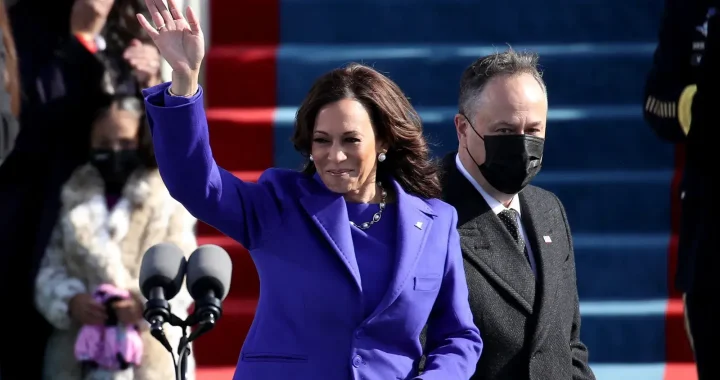South Korea’s President should Consider Compromise for Better

After rising to power by embracing uncompromising and sometimes combative politics, South Korea’s President Yoon Suk Yeol may have to rethink his signature style if he hopes to protect his legacy and party after a crushing election defeat.
Yoon, who was elected in 2022 for a single five-year term, is facing growing criticism, including from some members of his own party, for sticking to a hardline stance on a number of hot-button issues and scandals in the run-up to Wednesday’s elections that saw the opposition bloc led by the Democratic Party (DP) retain its control in the National Assembly.
Critics accused Yoon of failing to build on his People Power Party (PPP)’s initial popularity, engineered by its chief Han Dong-hoon, by repeatedly rejecting his advice on several issues, including accusations of bribery against the First Lady.
From the beginning of his term, the president has also refused to meet DP head Lee Jae-myung, who narrowly lost to Yoon in the closest presidential election ever and faces criminal corruption charges.
The president has also struck a hardline against protests and labour strikes, and has been accused by rights activists of wielding the legal system against critics.
“The public’s message is loud and clear, South Korea’s President Yoon, you’ve got to change,” said Rhee Jong-hoon, a conservative-leaning political analyst. “You need to talk to the other side, and meet the opposition leader, and pass bills through coordination with the opposition if you need.”
Lee Jun-han, professor of political science at Incheon National University, also urged Yoon to become more lenient, but both analysts said he may struggle to change.
ALSO READ: Expert warns South China Sea dispute could trigger WWIII
“The hope of the media and voters may be that the president should take the election results carefully and make changes to the way state administration is conducted in the future,” Lee said. “The president’s leadership style is not one that easily embraces those things.”
A former prosecutor with no previous political experience, Yoon was nicknamed the “fighting cock” for his tenacity as a lawyer and was courted by the conservative bloc after he showcased his uncompromising nature by filing bribery charges against a key aide to outgoing President Moon Jae-in – the man who hired him.
Yoon said he would “humbly” accept the results of Wednesday’s vote, work to improve the economy, and reform his administration, with several top aides, including the prime minister and party leader Han offering to resign.
In the wake of the vote, his office said the president would communicate more with the opposition.
“I wish things were handled in a more pre-emptive manner,” one government official said. “Responses were sort of slow at times which made trouble worse, and that apparently swayed people against us.”
Another official admitted the results were worse than expected, and would complicate the final years of Yoon’s administration. Both officials declined to be named due to the sensitivity of the matter.
Just weeks earlier, Yoon was improving in opinion polls largely due to his medical reform plan and opposition infighting over nominations.
But as surveys increasingly pointed to a sweeping victory for the opposition days before the polls, some PPP members, including a candidate running in a key battleground area in Seoul, started to demand Yoon withdraw from the party, though others dismissed these calls as premature.
“His way of handling contentious issues is unsophisticated and one-sided with no way out at all, and voters effectively vetoed that in the election,” said Kim Hyung-joon, a professor at Pai Chai University.
“The president should fix his government’s decision making mechanism so that he can remain the last troubleshooter, leaving it to party leaders and ministers to resolve conflicts and arrange a settlement first.”
Yoon Hee-woong, a public opinion analysis director at Opinion Live, said if South Korea’s President Yoon wants to preserve a legacy, the election should be a wake up call.
“Every president has ambition to make a good record within his or her term,” he said. “And to win public support, they can’t avoid calls for communication.”
 Breaking News – Kamala Harris Declares Intention To Run For Presidency
Breaking News – Kamala Harris Declares Intention To Run For Presidency  Obama joins Democrats urging Biden to ‘Reconsider’ Campaign
Obama joins Democrats urging Biden to ‘Reconsider’ Campaign  Eric Trump Demands Answers from Secret Service Director
Eric Trump Demands Answers from Secret Service Director  Europe Should Prepare for President JD Vance
Europe Should Prepare for President JD Vance  Is Anywhere Safe for Paul Kagame’s Critics?
Is Anywhere Safe for Paul Kagame’s Critics?  RNC Address Beef: Amber Rose Fires Back At Joy Reid
RNC Address Beef: Amber Rose Fires Back At Joy Reid  Biography Of Kamala Harris, Her Early Life, And Road To Presidency
Biography Of Kamala Harris, Her Early Life, And Road To Presidency  Top Achievements Of President Joe Biden You Might Have Missed
Top Achievements Of President Joe Biden You Might Have Missed